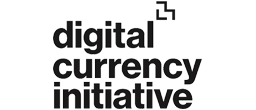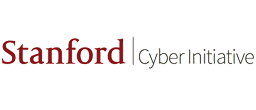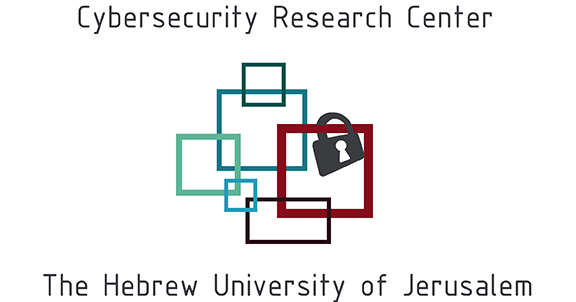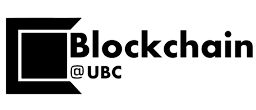Scaling the Edge
- RESEARCH: establishing and understanding the leading-edge of cryptography for cryptocurrencies
- INNOVATION: identifying and evolving protocol characteristics that foster open innovation by industry
- ADOPTION: driving bitcoin technology development capacity and end-user adoption
Sponsors
Workshop Sponsorship
If you are interested in sponsoring the Scaling Bitcoin Workshop, please contact: contact@scalingbitcoin.orgImportant Dates:
- 2017-10-20 23:59 UTC - Submission of logos for print (must be submitted in AI or SVG vector file formats)
Travel Subsidy
Important Dates:
- 2017-08-28 23:59 UTC - Last day for travel subsidy application
- 2017-09-01 23:59 UTC - Deadline for applicant acceptance notification
- 2017-11-07 23:59 UTC - Deadline for submission of travel receipts
Travel Subsidy Application Questions
If you are interested in applying for travel subsidy, please fill out the following form: https://goo.gl/forms/XUudGo7ApJqqbvMf1Call for Proposals
The current Scaling Bitcoin Workshop will take place November 4th -5th at the Frances C. Arrillaga Alumni Center 326 Galvez Street Stanford, CA 94305-6105, USA. We are accepting technical proposals for improving Bitcoin performance including designs, experimental results, and comparisons against other proposals. The goals are twofold: 1) to present potential solutions to scalability challenges while identifying key areas for further research and 2) to provide a venue where researchers, developers, and miners can communicate about Bitcoin development.
We are accepting two types of proposals: one in which accepted authors will have an opportunity to give a 20-30 minute presentation at the workshop, and another where accepted authors can run an hour-long interactive workshop.
This year we would like to place a stronger focus on the following topics:
- Simulation, modeling and testing
(methods and tools for simulation and testing of blockchain behavior) - Game theory and Mechanism Design
- Fungibility
Other topics of interest include:
- Improving Bitcoin throughput
- Layer 2 ideas (i.e. payment channels, etc.)
- Security and privacy
- Incentives and fee structures
- Network resilience
- Anti-spam measures
- Block size proposals
- Mining concerns
All as related to the scalability of Bitcoin.
Important Dates
- 2017-09-25 23:59 UTC - Last day for submission
- 2017-10-16 23:59 UTC - Last day for notification of acceptance and feedback
Formatting
We are doing rolling acceptance, so submit your proposal as soon as you can. Proposals may be submitted as a BIP or as a 1-2 page extended abstract describing ideas, designs, and expected experimental results. Indicate in the proposal whether you are interested in speaking, running an interactive workshop, or both. If you are interested in running an interactive workshop, please include an agenda.
Proposals should be submitted to proposals@scalingbitcoin.org by 2017-09-25 23:59 UTC.
All talks will be livestreamed and published online, including slide decks.
Workshop
How do the Workshops work?
- Events are live-streamed with remote participation facilitated via IRC for parallel online discussion and passing questions to the event.
- These workshops aim to facilitate the existing Bitcoin Improvement Proposals process. Most work will be done outside of the workshops in the intervening months. The workshops serve to be additive to the design and review process by raising awareness of diverse points of view, studies, simulations and proposals.
- Travel, venue details, accommodation recommendation are available below.
- Please see the FAQ section below, it should answer most other questions.
Schedule
Notes: Print
Print
- If you have any special dietary requirements or allergies, please e-mail contact@scalingbitcoin.org so that we can accommodate.
Schedule
Introduction
Privacy and Fungibility
Scalability
Smart Contracts
Proof Of Work
Open
Layer 2
Consensus
Fees and Radio
Discussion groups
Remote Participation
Location
326 Galvez Street
Stanford, CA 94305-6105, USA
From Highway 101 North & South
Take the Embarcadero Road exit west - toward Stanford. At El Camino Real, Embarcadero turns into Galvez Street as it enters the Stanford campus. Stay in the left lane and continue toward the center of campus. The Alumni Center is on the right side of Galvez Street, just after you cross over Campus DriveFrom Highway 280 North & South
Exit Sand Hill Road east toward Stanford. Continue east, turning right at the traffic light on Santa Cruz Avenue. Make an immediate left onto Junipero Serra Boulevard. Turn left at the second traffic light and onto Campus Drive East. Continue around Campus Drive East and turn left when you reach Serra Street, at the gas station. Follow Serra Street until it ends at Galvez Street.From El Camino Real
Exit El Camino Real at University Avenue. Turn toward the hills (away from the center of Palo Alto). As you enter Stanford, University Avenue becomes Palm Drive. Go through one traffic light, and turn left onto Campus Drive at the first stop sign.
Register
We are sorry, but the event has been sold out.
You will still be able to participate via the live stream, IRC, and Twitter.
Due to space limitations, we will not be able to admit anyone at the door.
Please add your name to the following waiting list to secure any tickets that may become available.
If you are a full-time student at Stanford University or MIT, please contact Allison Berke at Stanford or Neha Narula at MIT to see if there are any student tickets available. Academic Supporting Organizations have a number of tickets reserved for full-time students.
FAQ
-
I need some sort of document for a travel visa
(Info: https://travel.state.gov/content/visas/en/visit/visitor.html) You are responsible for identifying your own personal visa requirements to enter USA. If you need a letter of invitation, please correspond with aberke at stanford.edu (please include your name as in your passport, title and correspondence address).
IMPORTANT: Please note that visa applications must be submitted 8 weeks prior to travel. If you require visa for entry in United States, you must submit your application before 2017-09-01st.
-
I can’t go but I want to participate!
The event will be livestreamed, and you will be able to participate via IRC. Although it is naturally easier to participate in person, everyone at the event will have a desk in front of them and will be encouraged to join in online discussions with global participants who are viewing the live stream. It is also important to understand that no decisions are to be made at the workshop. (read more below)
-
How do I give a presentation?
You can submit your proposal to proposals@scalingbitcoin.org (see CFP above). If you’ve worked on research, we recommend that you post the results, including papers, simulation results, and source code, to the bitcoin-dev discussion list. Depending on the quantity of accepted presentations, the workshop will allot a fair amount of time to each presenter. If people have substantially overlapping plans, they may be suggested to merge. Publishing a paper is NOT required—if you have a good presentation plan, you can propose a detailed summary.
- Why Stanford?
This year we had an unprecedented number of submissions from many prospective hosts all around the world. Stanford is one of the most active educational institutions involved in Bitcoin education, research and development. In January 2017, Stanford held Blockchain Protocol Analysis and Security Engineering conference. Stanford is also one of the few educational institutions that offers courses on Bitcoin, Cryptocurrencies and related cryptography. In addition, Stanford is in close proximity to San Francisco, which is a home to the largest Bitcoin deveopment community.
- Are any decisions made at the workshop?
Absolutely no decisions are made at workshops, as this would run the risk of being rushed and unfair to the global community unable to attend in person. The workshop is about raising awareness of issues and proposals, finding common ground, and encouraging public discussion within the existing mechanism of technical progress through the Bitcoin Improvement Proposal process.
- Will there be a debate?
There will probably be no debate, and the workshop organizers and participants will be operating with the goal of making the event low-stress and non-confrontational. The intent of the workshops are to showcase diverse points of view and promote open-mindedness in order to improve our collective understanding of how to improve Bitcoin’s scalability. In-person debates could too easily do a disservice to the future of Bitcoin in being about solidifying simplified positions for the purpose of winning political points. It would be unreasonable to entrust the safety and security of the future of Bitcoin to smooth talking at a one-time event rather than deliberate technical study with time for the global community to weigh in.
- Can we discuss governance of the Bitcoin projects at this workshop?
Scaling Bitcoin Workshops are focused on raising technical awareness of scalability issues, simulations and proposals to improve scalability. Conference participants want this event to be entirely focused on the science and engineering, which is how Open Source Software development has proven to deliver excellence.
- Future Workshops? Workshop BIP?
We aim to host a Scaling Bitcoin Workshop once per year. If you would like to host next year's event please e-mail to contact@scalingbitcoin.org
- Are there Vegetarian, Gluten-Free Options for the Food?
Yes. Please email contact@scalingbitcoin.org if we can be of any assistance.
- Is there Wheel Chair Access to these social events?
Yes, all venues have been audited and are wheel-chair friendly. Please email contact@scalingbitcoin.org if we can be of any assistance.
Online Resources
- Bitcoin-Workshops-Announce list https://lists.linuxfoundation.org/mailman/listinfo/bitcoin-workshops-announce
- Bitcoin-Workshops discussion list https://lists.linuxfoundation.org/mailman/listinfo/bitcoin-workshops
- #bitcoin-workshops chat on the Freenode IRC network http://webchat.freenode.net/?channels=bitcoin-workshops
About
Scaling Bitcoin Planning Committee
- Anton Yemelyanov, Base58 Association NPO. (Planning Committee Chair)
- Nelly Milanova, Base58 Association NPO.
- Jeremy Rubin, Bitcoin Core Contributor
- Neha Narula, MIT DCI
- Ferdinando M. Ametrano, Bitcoin and Blockchain Technology professor at Politecnico di Milano
Workshop Host Committee
- Allison Berke, Executive Director at the Stanford Cyber Initiative (Host Committee Chair)
- Byron Gibson, Engineering Consultant and Startup Advisor
- Alexy Khrabov, By The Bay
Diversity & Inclusion Committee
- Steven McKie, purse.io / bcoin.io
- Ari Nazir, Neural Capital
- Nelly Milanova, Base58 Association NPO.
- Boyma Fahnbulleh, Chain
Scaling Bitcoin Advisory Committee
- Leonhard Weese, Bitcoin Association of Hong Kong
- Larry Salibra, Bitcoin Association of Hong Kong
- Bryan Bishop, LedgerX, Bitcoin Core contributor
- Dan Elitzer
- Luke Dashjr, Bitcoin Core contributor
- Shawn O'Connor
- Victoria Van Eyk
- Eric Martindale
- Meltem Demirors, Director of Development, Digital Currency Group
- Kang Xie, Volunteer
- Shin'ichiro Matsuo, Georgetown University, BSafe Network
- Ittay Eyal, Technion Israel Institute of Technology
- Matthew Roszak, Bloq
Program Committee
- Ethan Heilman, Boston University (Program Chair)
- Dan Boneh, Stanford
- Benedikt Bunz, Stanford
- Jameson Lopp, BitGo
- Johnson Lau, Bitcoin Core Contributor
- Paul Sztorc, Bloq / Drivechain
- Michael Youssefmir, Google
- Yonatan Sompolinsky, Hebrew University of Jerusalem
- Foteini Baldimtsi, George Mason University
- Bryan Bishop
- Pieter Wuille, Blockstream / Bitcoin Core Contributor
- Tadge Dryja, MIT DCI / Lightning Network Contributor
- Ittay Eyal, Technion Israel Institute of Technology























